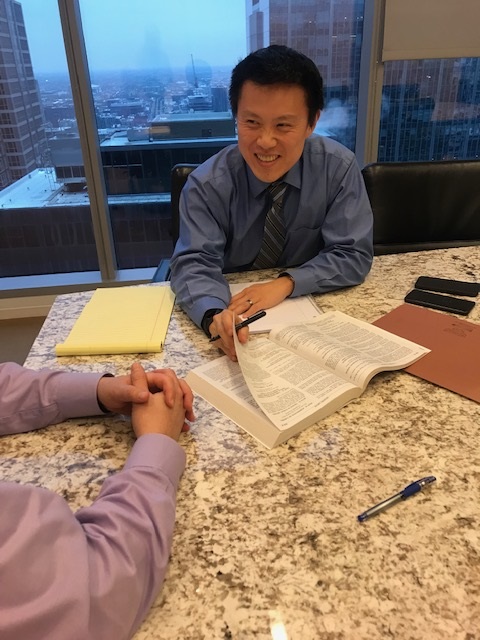Peter Cheun’s immigration pro bono practice has its roots in Mr. Cheun’s own life.
“My parents brought me to the U.S. when I was very young,” Mr. Cheun said. “For most of my childhood, all I knew was that I was a non-citizen. As I got older and I began to understand that there was a system in place that undergirded our immigration laws, I started to understand how fortunate I was. Despite the fact that I didn't become a citizen until I was a little older, I never had to live in the shadows like a lot of people in our country do today, and I thought that it was my responsibility to give back.”
Even prior to attending law school, Mr. Cheun worked at an immigration law office as a legal assistant, and when he started a job at Skadden, Arps, Slate, Meagher & Flom LLP, one of his first stops was their pro bono coordinator’s office to look for immigration cases he might be able to support.
“I really do think it's good for your soul to do pro bono work,” Mr. Cheun said. “One of the things a partner in our office said when I first came to work here was you should always strive to have one active pro bono case on your desk at all times, and I've always tried to be mindful of that.”
Mr. Cheun said it’s often his experiences with pro bono clients that help him be a better attorney and understand the client's perspective, like an early client who had been detained for some time when Mr. Cheun took his case.
“It was my very first time in immigration court, let alone a bond hearing.” Mr. Cheun recalled. “After the judge granted his release, I was struck by how weary my client looked. It was my first time seeing someone being released from immigration detention and it had a profound effect on me.”

In addition to the physical toll that the immigration system takes on individuals, Mr. Cheun also finds it can be a challenge to balance the mental and emotional needs of his clients with that of the law.
“In many cases you have to ask people about some of the worst times in their lives that involve trauma and pain,” Mr. Cheun said. “Under the best of circumstances we'd have months if not years to develop the trust and understanding between attorneys and clients so that clients naturally tell their stories. But sometimes we don't have the luxury of time, so we just have to push forward. It's always so difficult, and I always second-guess myself about how much I need to press my clients to tell more, give more details; all that might be important in building out a case or story.”
However, the work often has life-changing results for his clients.
“For asylees or refugees applying for adjustment, they've been in the U.S. for at least a year, they've settled in to things and if they're lucky, the promise of asylum or refugee status is starting to bear fruit,” Mr. Cheun said. “You talk to people who are applying for adjustment, and you hear stories about new jobs, and kids going to school, meeting new friends, joining groups, maybe even a new boyfriend or girlfriend. The life story really builds out in that moment. We all work really hard on our immigration cases, and we do it not just to win a case but to win a new life for our clients.”
Mr. Cheun says his pro bono practice reflects the values he would like to see not only in the U.S. legal system but in American society.
“I really do believe that Americans have a shared migrant story, and while that might not unite us politically, I think it does unite the vast majority of us on an individual level,” Mr. Cheun said. “One of my favorite topics of conversation is to share stories with people about our family history and how our families — whether it's one generation ago or dozens of generations ago — left their homes in search of new lives.”
Alejandra Oliva is a communications coordinator at NIJC.

